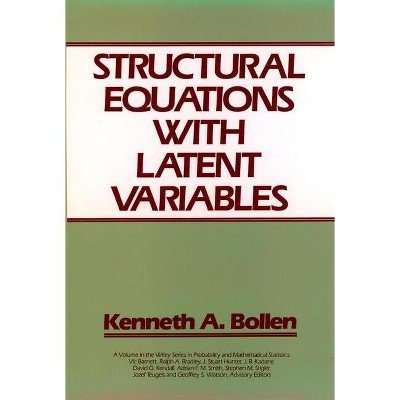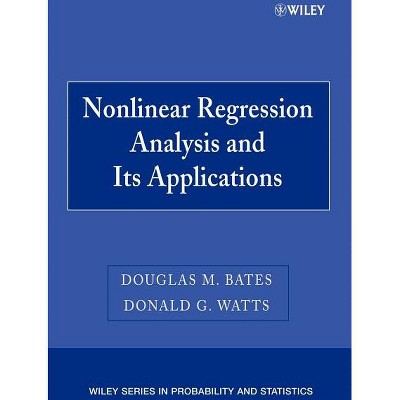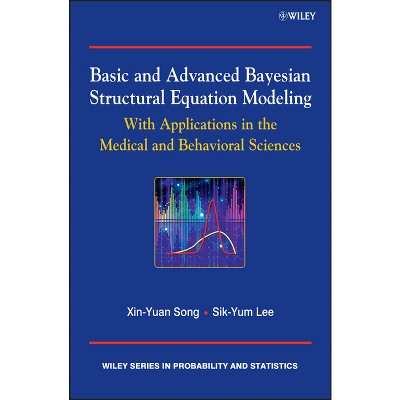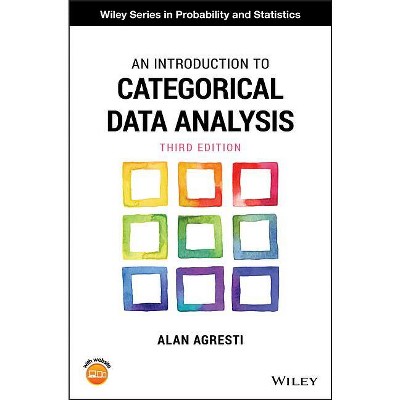Sponsored

Advances in Longitudinal Survey Methodology - (Wiley Probability and Statistics) by Peter Lynn (Hardcover)
In Stock
Sponsored
About this item
Highlights
- Advances in Longitudinal Survey Methodology Explore an up-to-date overview of best practices in the implementation of longitudinal surveys from leading experts in the field of survey methodologyAdvances in Longitudinal Survey Methodology delivers a thorough review of the most current knowledge in the implementation of longitudinal surveys.
- About the Author: Peter Lynn is Professor of Survey Methodology and Director of the Institute for Social and Economic Research (ISER), University of Essex.
- 544 Pages
- Mathematics, Probability & Statistics
- Series Name: Wiley Probability and Statistics
Description
About the Book
"The methodology of longitudinal surveys is a specialist topic which has evolved from the field of survey methodology. Survey methodology itself has evolved over the last century or so, with an early focus on sampling theory (1890s to 1940s), followed by attention to question and questionnaire design (1940s to 1970s) and obtaining respondent participation (1980s to 2000s). More recent developments included web survey methods and mixed mode methods, other uses of new technologies, data linkage, the use of paradata. Though the first longitudinal surveys began in the 1960s, such surveys were rare until the 1980s. Researchers became increasingly aware of various unique features and opportunities of longitudinal surveys and methodological research into these unique features developed rapidly throughout the 1990s and 2000s. The data produced by longitudinal surveys allow researchers to better understand dynamic processes of change, including processes of cause-and-effect, that can barely be addressed by data from cross-sectional surveys. An understanding of the implications of the methodological options available for the design and implementation of such surveys will help researchers to produce better longitudinal data in future."--Book Synopsis
Advances in Longitudinal Survey MethodologyExplore an up-to-date overview of best practices in the implementation of longitudinal surveys from leading experts in the field of survey methodology
Advances in Longitudinal Survey Methodology delivers a thorough review of the most current knowledge in the implementation of longitudinal surveys. The book provides a comprehensive overview of the many advances that have been made in the field of longitudinal survey methodology over the past fifteen years, as well as extending the topic coverage of the earlier volume, "Methodology of Longitudinal Surveys", published in 2009. This new edited volume covers subjects like dependent interviewing, interviewer effects, panel conditioning, rotation group bias, measurement of cognition, and weighting.
New chapters discussing the recent shift to mixed-mode data collection and obtaining respondents' consent to data linkage add to the book's relevance to students and social scientists seeking to understand modern challenges facing data collectors today. Readers will also benefit from the inclusion of:
An invaluable source for post-graduate students, professors, and researchers in the field of survey methodology, Advances in Longitudinal Survey Methodology will also earn a place in the libraries of anyone who regularly works with or conducts longitudinal surveys and requires a one-stop reference for the latest developments and findings in the field.
From the Back Cover
Explore an up-to-date overview of best practices in the implementation of longitudinal surveys from leading experts in the field of survey methodology
Advances in Longitudinal Survey Methodology delivers a thorough review of the most current knowledge in the implementation of longitudinal surveys. The book provides a comprehensive overview of the many advances that have been made in the field of longitudinal survey methodology over the past fifteen years, as well as extending the topic coverage of the earlier volume, "Methodology of Longitudinal Surveys", published in 2009. This new edited volume covers subjects like dependent interviewing, interviewer effects, panel conditioning, rotation group bias, measurement of cognition, and weighting.
New chapters discussing the recent shift to mixed-mode data collection and obtaining respondents' consent to data linkage add to the book's relevance to students and social scientists seeking to understand modern challenges facing data collectors today. Readers will also benefit from the inclusion of:
An invaluable source for post-graduate students, professors, and researchers in the field of survey methodology, Advances in Longitudinal Survey Methodology will also earn a place in the libraries of anyone who regularly works with or conducts longitudinal surveys and requires a one-stop reference for the latest developments and findings in the field.
About the Author
Peter Lynn is Professor of Survey Methodology and Director of the Institute for Social and Economic Research (ISER), University of Essex. ISER is one of the leading research centres in the world for longitudinal survey methods and Professor Lynn has headed the survey methods programme at ISER since he joined Essex in 2001. Professor Lynn has published more than 60 articles on survey methods topics in top scientific journals, mostly on topics specific to longitudinal surveys, in addition to numerous book chapters, reports and other articles.
Shipping details
Return details
Trending Non-Fiction











